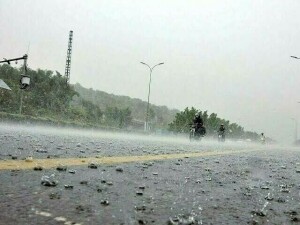KARACHI: The State Bank of Pakistan (SBP) Wednesday launched Environmental & Social Risk Management (ESRM) Implementation Manual to help banks and DFIs identify and manage environment and social risk by having the right policies, procedures and tools.
The SBP has issued this manual with an aim to ensure compliance of minimum standard for environmental and social risk management in the financial sector under Green Banking Guidelines (GBGs) issued in 2017 to safeguard against environmental risks emerging from banks and DFIs businesses and operations.
State Bank Governor Jameel Ahmed officially launched the Environmental & Social Risk Management manual in a high-level sustainable banking conference organized by SBP in collaboration with IFC on Wednesday.
According to the BP, the manual provides tools and procedures to strengthen and accelerate the implementation of the risk management section of GBGs. In addition to environmental risks, the manual is also focusing on social and climatic risks, which are becoming relevant and crucial for Pakistan. The manual provides a comprehensive Environmental & Social Management System (ESMS) for systematic guidance to banks/DFIs on assessing and managing environmental and social risks.
SBP takes big step to contain forex outflow
The manual also provides a robust, quantitative risk rating system and the Environment and Social Due Diligence (ESDD) Checklist in the manual incorporates guidance notes to assist banks/DFIs in performing E&S due diligence.
The manual also includes a Supervision Checklist to assist banks/DFIs in supervising compliance of E&S related issues in the financing project.
The manual provides a Green Banking Monitoring & Evaluation (M&E) Reporting Template for reporting of banks/DFIs’ GBGs implementation progress including ESRM activities to SBP, on annual basis.
The ESRM Implementation Manual, being a procedural guide, will be used by banks/DFIs as a tool for compliance of GBGs with addition of social risk.
The SBP has asked that the banks and DFIs fully implement the ESRM within three (03) years of issuance of this Manual. SBP will also play its due facilitative role in implementation of ESRM through training, awareness sessions and other support measures.
The State Bank has played a pioneering role in integrating environmental risks into overall credit assessment and developed the Green Banking Guidelines (GBGs) for Pakistan’s financial sector in 2017. The objective was to establish a minimum standard to ensure a level-playing for the financial sector and promote a sustainable business model in Pakistan.
Since the issuance of the GBGs, banks and DFIs have identified several challenges, including identifying and managing environmental risks in lending, the resources and tools required to perform due diligence meaningfully, and the different levels of implementation among banks/DFIs, making it difficult for the SBP to fully understand the quality of implementation.
Copyright Business Recorder, 2022























Comments
Comments are closed.